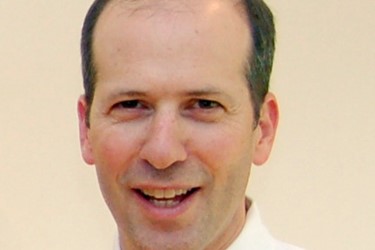Inside Adaptimmune's Road to ODD

By Erin Harris, Editor-In-Chief, Cell & Gene
Follow Me On Twitter @ErinHarris_1

Adaptimmune’s SPEAR (Specific Peptide Enhanced Affinity Receptor) T-cell platform enables the engineering of T-cells to target and destroy cancer across multiple solid tumors. The FDA has granted Orphan Drug Designation (ODD) to SPEAR T-cells targeting MAGE-A4 (Adaptimmune’s ADP-A2M4 program) for the treatment of soft tissue sarcomas. Orphan Designation by FDA was created to encourage the development of drugs for rare diseases, such as sarcomas. I caught up with Dr. Elliot Norry, interim Chief Medical Officer at Adaptimmune, to learn more about the designation’s impact on the treatment of soft tissue sarcomas.
According to Dr. Norry, Adaptimmune is conducting a Phase 2 trial (SPEARHEAD-1) in patients with two types of soft tissue sarcoma — synovial sarcoma and myxoid/round cell liposarcoma. “The patients in our trials have few other treatment options and have typically failed other lines of treatment and do not have long to live if their cancer goes unchecked,” he says. “These sarcomas are deadly killers that strike patients in the prime of their lives. The typical standard of care involves toxic chemotherapies, radiation, and sometimes radical surgeries such as amputations.”
Dr. Norry states that beyond the typical standard of care, there are few treatment options available to patients. Votrient is one of these treatment options. It is estimated that less than 10% of soft tissue sarcoma patients achieve RECIST responses with this therapy. Therefore, there is a great unmet medical need to develop effective treatments for patients. “ODD for ADP-A2M4, which we have seen can be effective in patients with synovial sarcoma, is a tremendous milestone in bringing this much-needed therapy to market,” he says. “ODD for ADP-A2M4 will help enable Adaptimmune to develop this therapy for these rare and deadly cancers for which there are few other options as there are regulatory advantages to ODD status — especially for smaller companies.”
Dr. Norry and I discussed the additional steps necessary to achieve the goal of providing the therapy. As such, Adaptimmune’s team is currently investigating the efficacy of ADP-A2M4 in its SPEARHEAD-1 trial, which is Phase 2. “This trial is designed to enroll up to 60 patients and the primary endpoint is overall response rate as determined by RECIST v1.1 adjudicated by independent review,” he explains. “The trial also has an interim futility analysis built in that is three or more responses in the first 15 patients needed for study continuation; we believe this is the first milestone we will need to achieve in this study, and plan to have this in the first half of 2020.”
Adaptimmune shared the results it has already seen in sarcoma with ADP-A2M4, which will be updated at ESMO at the end of the month. After futility is met, the study will continue to enroll, and the company will be in active discussions with FDA as to whether this trial will be able to serve as a registrational trial — or, in other words, whether will Adaptimmune be able to use the data from this trial for the basis of approval. “If we are able to use this trial as a registration trial, we will continue to enroll and assess patient responses with a plan to be on the market in 2022,” says Dr. Norry. “We have a long history in sarcoma clinical trials that pre-dates ADP-A2M4 because of our NY-ESO program that was optioned by GSK as well as internal expertise and relationships with leading sarcoma centers. Therefore, we feel well-positioned to achieve our goals for sarcoma patients with our ADP-A2M4 program.”
FDA’s ODD impacts Adaptimmune’s investigations greatly in that ODD is a milestone for getting ADP-A2M4 to market in these rare cancers. ODD provides many advantages — both financially and from a regulatory perspective — that can be very helpful for smaller companies like Adaptimmune in bringing therapies to market for rare indications.
Others in the industry can learn from Adaptimmune’s work with the FDA to achieve ODD. “We have seen efficacy in synovial sarcoma with ADP-A2M4 and we have remained committed to bringing this therapy to market for these patients with few other options,” says Dr. Norry. “Even though these types of sarcomas are rare, the impact our therapies could have for these patients is tremendous. We have kept the patient at the center of our drive to get ADP-A2M4 approved, and ODD is just one milestone in this journey.”
